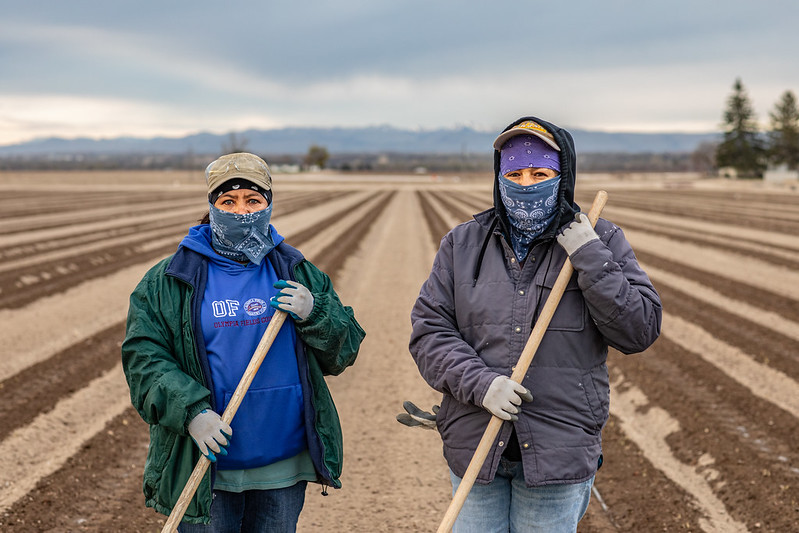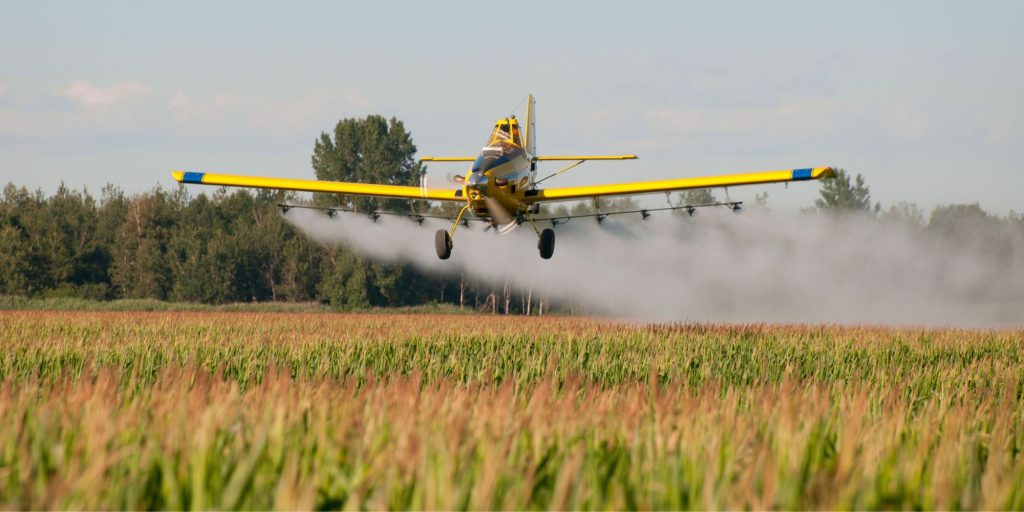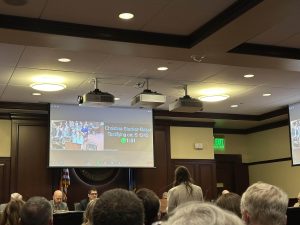IORC members testify against a bill to allow pesticide manufacturers immunity from claims their chemicals have harmed farmworkers and others, protecting chemical companies from billion-dollar claims.
On February 6th, 2024, the Pesticide Immunity Bill (Senate Bill 1245) was approved on a 5-3 vote in the Idaho Senate Commerce & Human Resources Committee. Concerns were raised from individuals and organizations across Idaho (including IORC), including farmworker advocates, property owners, conservationists, and legal advocates. The bill would exclude Idahoans, who may be harmed by pesticides, from participating in ongoing or future legal cases against pesticide manufacturers.
“SB 1245 would eliminate the ability for farmworkers, landscapers, farmers, entire families and communities to participate in lawsuits and class action settlements,” said IORC Vice Chair Marielena Vega. “It would put the responsibility on farmworkers, taxpayers, insurance companies, and other individuals to cover costs and damages instead of corporate pesticide giants who should be held accountable.”
The bill is similar to other bills advancing in Iowa, Florida, and Missouri that would shield pesticide manufacturers from lawsuits, and appears to be a new tactic in response to legal claims that have cost the companies billions of dollars in recent years.
A number of studies have shown links between exposure to certain commonly used pesticides and health ailments including cancer, Parkinson’s disease, harms to brain development, and other negative effects.
”The legislature should not be preventing them from receiving the justice they deserve,” said Christina Stucker-Gassi from the Northwest Center for Alternatives to Pesticides, speaking of Idahoans who are dealing with health impacts they believe are linked to their exposure to pesticides.
Local research in Idaho has shown elevated levels of pesticides in pregnant women who live close to agricultural fields. Another Idaho study found elevated cancer occurrence correlated to pesticide exposure. As a result, the potential threats to rural Idahoans and farmworkers appears highest.
Keep up to date with grassroots organizing in Idaho with IORC’s newsletter.
“As an organization that works directly with our farmworker community, we ask the Idaho Legislature to take a step back and look at the impact this bill would have on our farmworkers,” Ms. Vega continued. “Farmworkers and their families deserve to be protected and should be given the right to bring forth claims against those who threaten their personal health, families, and livelihoods.”
While farmworkers are often hardest hit by pesticide harms, pesticides can also contaminate groundwater, threatening a wider population. Unfortunately, it’s become nearly impossible to track since the Idaho State Department of Agriculture stopped issuing their monitoring report back in 2020.
Many other countries ban the use of certain pesticides that are approved for use in the United States by the Environmental Protection Agency. The EPA has been criticized for their unwillingness to ban pesticides, even after scientists have provided credible evidence linking pesticides to serious health concerns.
Settlements and guilty verdicts against German pharmaceutical giant Bayer alone have exceeded $15+ billion and other individual and class action lawsuits are currently pending against other large multinational pesticide manufacturers. Another Chinese state-owned corporation, Syngenta has faced increased scrutiny over Paraquat, a pesticide linked to Parkinson’s disease. China and at least 57 other countries have banned the use of Paraquat.
Learn more: Read the joint press release issued by IORC, Northwest Center for Alternatives to Pesticides, Idaho Trial Lawyers Association, and the Idaho Conservation League here.

Yes! I would like to help empower people to improve the well-being of their communities.


